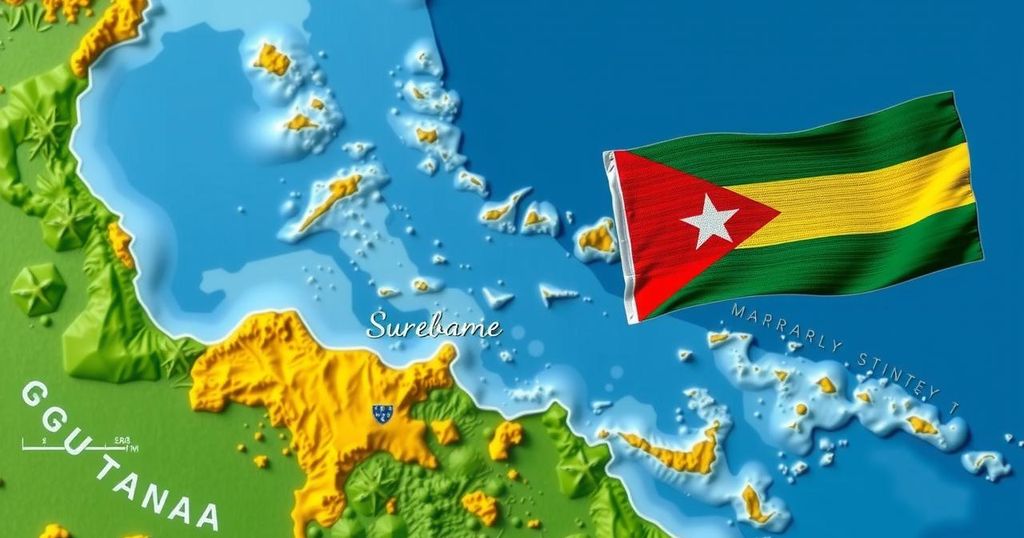Suriname has formally protested against Guyana’s plans to develop the disputed Tigri area, where the government intends to upgrade a military airstrip. This maneuver has raised concerns over territorial claims and bilateral relations. Minister Albert Ramdin highlighted the need to respect past agreements and continue peaceful dialogue to resolve these conflicts. Historical disputes since the 1960s remain pertinent in shaping the current geopolitical landscape between the two nations.
Suriname’s Foreign Affairs Minister, Albert Ramdin, has officially lodged a protest note with Guyana regarding recent plans to develop the disputed Tigri area. This action follows President Irfaan Ali’s announcement of initiatives, including the hardening of an airstrip at Camp Tigri, a military installation situated within this contentious region. The Tigri area, also known as New River Triangle in Guyana, has a long-standing history of disputes dating back to military skirmishes in the late 1960s.
During a meeting with Guyanese ambassador Virjanand Depoo, Ramdin expressed Suriname’s strong opposition to activities conducted in this territory without prior authorization from the Surinamese government. The discussion highlighted concerns over public statements made by President Ali, which Ramdin indicated might threaten the cooperation previously established between the two nations.
The tensions surrounding the Tigri area were further exacerbated by plans from Guyana to build a new educational facility on Kasjoe Island, another location in the disputed territory. Ramdin noted that the presence of Guyanese forces in the area contradicts earlier agreements made at the Chaguaramas Treaty in 1970. He underscored the need for diplomatic dialogue to resolve these issues amicably and prevent disruption in bilateral relations.
Historically, the controversially claimed Tigri area has been a point of contention, especially following an incursion by the Guyana Defence Force in 1969 when Suriname was still part of the Netherlands. Despite attempts at mediation by Trinidad and Tobago, the Guyanese government’s occupation of the region persists. Previous leaders of both countries have urged for a final resolution, emphasizing the importance of formal adjudication at international bodies for enduring peace.
The ongoing territorial dispute between Suriname and Guyana over the Tigri area, referred to as the New River Triangle by Guyana, can be traced back to post-colonial tensions following both nations’ independences. The region includes vital land and resources and has been at the heart of military conflicts, particularly the armed skirmishes of 1969, which resulted in Guyana’s military occupying the area. Diplomatic efforts to mediate the conflict have included agreements to withdraw military forces, although these have not been implemented effectively. Past presidents of both countries have voiced their positions on the territory, with Suriname affirming its claims based on historical precedent and treaties, while Guyana has proposed adjudication by international bodies. The current situation is reflective of long-standing issues regarding territorial sovereignty and international diplomacy within the region.
The recent lodging of a protest note by Suriname to Guyana illustrates the complex nature of their historical territorial dispute, underscoring the importance of diplomatic engagement to address assertions about development in the contested Tigri area. The responses from both nations highlight the necessity for adherence to past agreements and the exploration of peaceful resolutions to prevent escalation of tensions. Continued discussions are vital to foster cooperative relations while respecting each nation’s territorial integrity.
Original Source: www.jamaicaobserver.com






